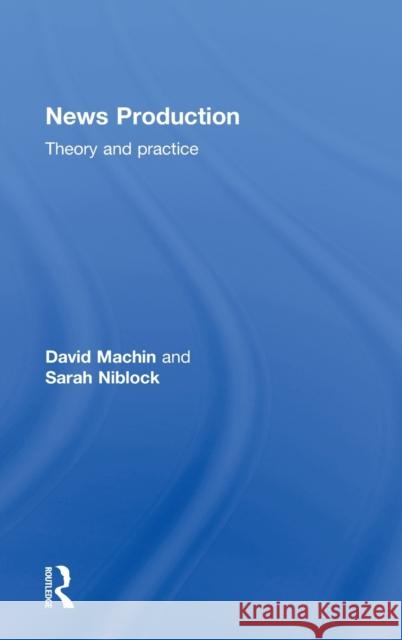News Production: Theory and Practice » książka
News Production: Theory and Practice
ISBN-13: 9780415371407 / Angielski / Twarda / 2006 / 208 str.
News Production: Theory and Practice
ISBN-13: 9780415371407 / Angielski / Twarda / 2006 / 208 str.
(netto: 720,05 VAT: 5%)
Najniższa cena z 30 dni: 654,86
ok. 16-18 dni roboczych.
Darmowa dostawa!
Sarah Niblock and David Machin bring us a much needed book that bridges the gap between journalistic theory and practice. The authors respond to a recent and growing recognition in academia and indeed journalism of the importance of reflective practice based on consultation of the sociological literature on journalism and the media industry. There is a distinct lack of up-to-date publications on journalists at work, the most recent ethnographies having been published in the 1980s. This book will provide detailed ethnographies of eight different news production settings. Each chapter follows two news workers through their daily routines, detailing the exact nature of their jobs, the constraints they may encounter, how they cope with those constraints and finally to what extent their work can be understood through reference to the sociological theory and vice versa. Chapters include "News agencies: something to please everyone," "The roving reporter," "Photojournalism" and "The new reporter learning the ropes."
The book is set in context by two opening chapters on the "History of News" and the "Sociology of News gathering." The former holds the premise that it is impossible to understand journalistic practice, the workings of the industry, or news values and the morality of "objectivity" without looking at the way that the news industry has grown up over the past 100 or so years. The emphasis of this chapter is very much on looking forward to the ethnographies which follow. "Sociology of news gathering" similarly details the sociological theory relevant to the ensuing chapters, theories which will be constantly referred back to throughout the course of the book. The section will becomprised of a review of the sociological literature on news agencies, news gathering, news values, the public sphere and tabloidisation.
This book will be an invaluable and much-needed real-life account of reporting in the context of contemporary newsrooms. For students taking practical units in news reporting, sub-editing and even law and ethics, this text will provide the type of concrete examples they will need to consolidate their skills-based training. The ethnographies will provide case-studies against which they can compare their experiences. Most journalism and media courses require their students to complete work-based assignments which are assessed through reflective reports. This book will help students prepare for their placements by gaining a strong sense of the working environment and tasks. It will also help students raise questions about their placements to form the basis of their reports. These reports expect them to synthesise the practice of journalism with the critical accounts of the profession by academics. No other journalism text does this.











